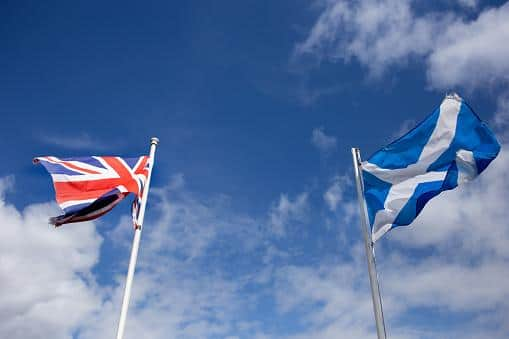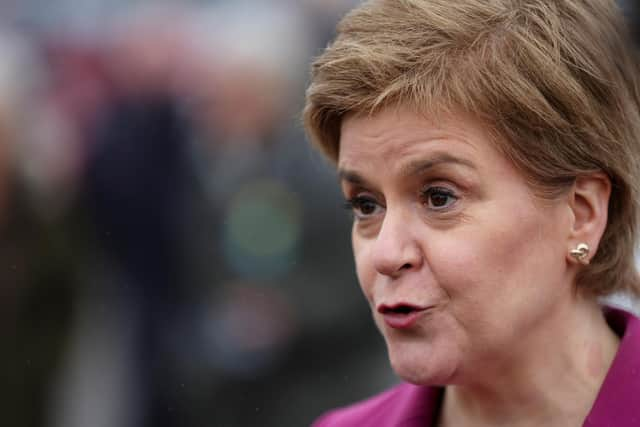Scottish independence: Scotland facing tense wait until real fight begins - Conor Matchett
This article contains affiliate links. We may earn a small commission on items purchased through this article, but that does not affect our editorial judgement.
In it she told the public that she intends to hold a second independence referendum on October 19, 2023, and announced she would request a Section 30 order from the Prime Minister.
So far, so expected, but her next move took almost everybody watching by surprise.
Advertisement
Hide AdAdvertisement
Hide AdReiterating that Scotland must hold a legal referendum, the SNP leader announced the Lord Advocate had – on the First Minister’s request – referred the question of Holyrood’s competency around passing a referendum bill to the Supreme Court.
Such a move is likely to fail, at least according to the majority of legal thinkers in Scotland, but if it doesn’t there will be a vote next year.
If not, Ms Sturgeon announced, the SNP would fight the 2024 election on the single issue of whether Scotland should be independent.
It would be, she said, a “de facto referendum”.


In one fell swoop the First Minister moved the independence debate on for the first time but also has set up her own departure.
Anything other than victory of at least 50 per cent plus one vote in 2024 will lead to her resignation and the end of her career in frontline politics.
The speech sets up the next few months of debate in Scotland which will inevitably cover both the prospects of success at the Supreme Court – should it hear the case – and the inevitable start of a full-blown campaign.
Already we are hearing the government stay tight-lipped on key questions about this ‘de facto referendum’, while Westminster parties plot how best to use the SNP’s push for independence against their main opponents in advance of an election.


On the substance of the independence debate, the Scottish Government has said we should expect additional papers through Holyrood’s recess setting out the case for independence and answering key questions on the major issues of currency, borders, and European Union membership.
Advertisement
Hide AdAdvertisement
Hide AdWe might finally hear from opposition parties on their vision of Scotland remaining in the union.
There will also be some who will refuse to allow the debate to be about picking between the status quo or independence with the prospect of so-called Devo Max sure to appear on the horizon.
In The Scotsman’s most recent poll, undertaken by Savanta ComRes, the public saw a notable shift towards believing that a better devolution settlement might be a decent option.
Net support for ‘Devo Max’ where all but defence and foreign affairs were left to Scotland has risen from a net support of -4 to +4 in six months, with the poll this week the first time the concept has been more popular than unpopular.
There are also more people supporting the idea of a three-option ballot, up to 36 per cent (up five points since May) calling for it compared to 50 per cent (down seven points) happy with the standard Yes/No ballot.
In any case, the question of what Scotland’s future looks like will have to be tackled by each of the major political parties.
Sitting back and letting the SNP bang the independence drum will no longer be good enough to dull their electoral success.
In our poll, we asked Scots about Ms Sturgeon’s legacy as First Minister and whether she has been a success or a failure.
Advertisement
Hide AdAdvertisement
Hide AdAs with all questions, the answers split on constitutional lines, but more than half (53 per cent) said she has been a success and just 31 per cent said she is a failure.
However, only 35 per cent of SNP voters believe she has been an “overwhelming success” with 50 per cent stating she has been “somewhat a success”.
For the First Minister, success and her legacy will be defined by one thing only; whether she secures independence.
Want to hear more from The Scotsman's politics team? Check out the latest episode of our political podcast, The Steamie.
It's available wherever you get your podcasts, including Apple Podcasts and Spotify.
Comments
Want to join the conversation? Please or to comment on this article.

